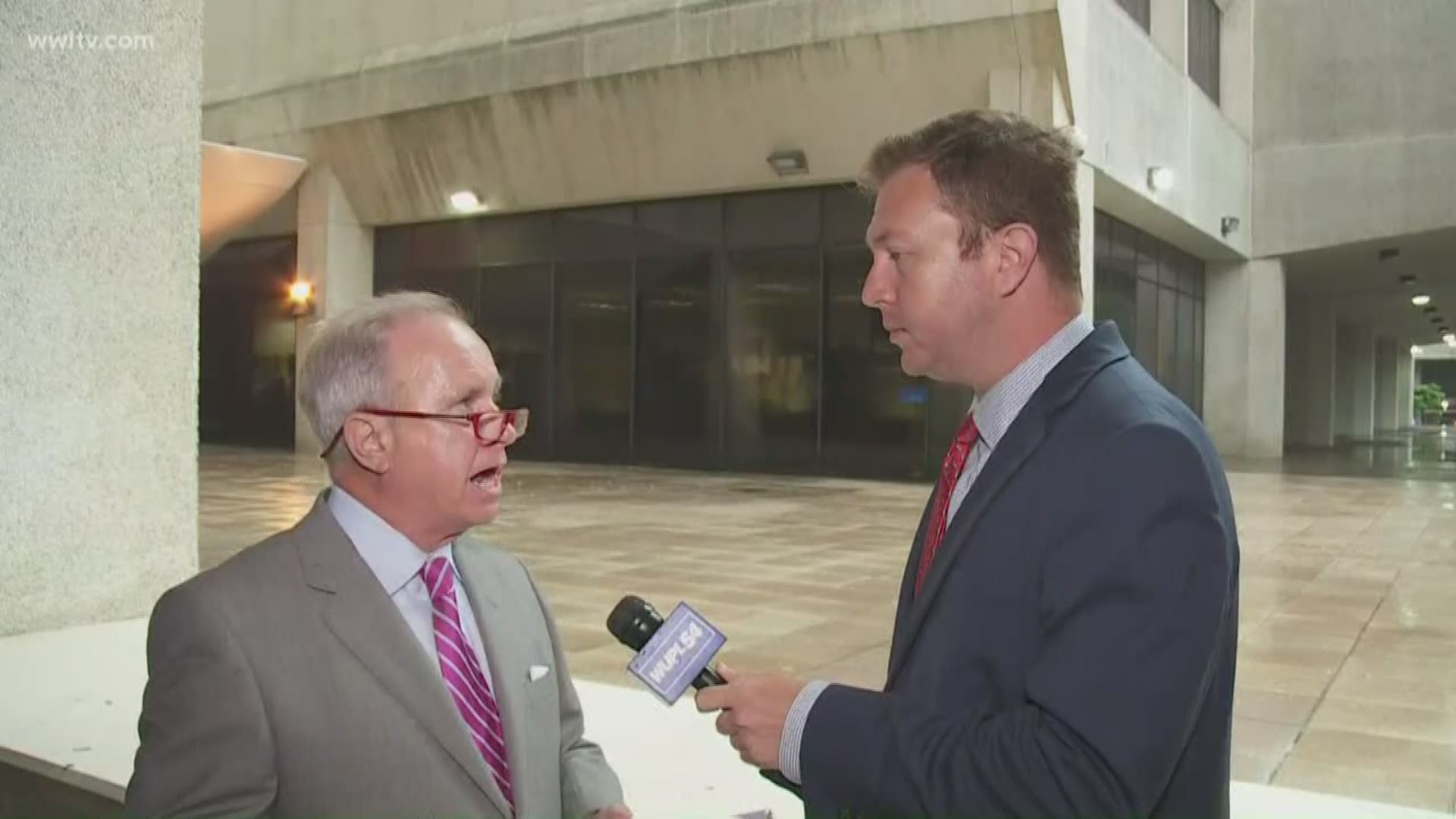NEW ORLEANS —
On April 30, Chris Roberts resigned from the Jefferson Parish Council, just as a federal investigation into his reported financial issues was coming to a head. Eleven days later, on May 9, he was indicted on 29 charges, including wire fraud (22 charges) and tax evasion (7 counts).
Because his indictment is 32 pages long, and full of legal phrasing about all sorts of financial crimes, here are the highlights:
What are the wire fraud charges?
According to the indictment, Roberts owned and worked at several businesses on the side. One of them, a lawn care company, is mentioned several times in the indictment as Company A. This is the big one. Roberts worked as the general manager for this company, meaning he had access to company checkbooks and bank accounts.
Prosecutors allege Roberts essentially used Company A as a money bank until he was fired in 2017, writing checks to himself and writing them off as business expenses or reimbursement for things he bought for the company.
But details in the indictment paint a different picture. The checks (sometimes cut to himself, sometimes to other companies that he owned) were used to pay for expensive personal items.
Items allegedly bought using Company A’s money include a $16,000 engagement ring (complete with a 2.1 carat diamond with a split shank and 84 additional diamonds surrounding the main gem), three remote-controlled drones (each costing at least $999) and a shipping container he used as a retail storefront for his fireworks business.
He also allegedly used money taken fraudulently from the company to pay off gambling debts, which were another angle of investigation. The FBI believed he had a serious gambling problem that may have interfered with his duties as a councilmember.
What are the tax evasion charges?
Alongside taking money from Company A, Roberts allegedly filed false tax returns for at least seven years, severely underestimating how much income he made.
Roberts processed several years of his taxes (2010-2013) in 2015, after political opponents attacked him over late filings.
For example, for tax year 2010 (meant to be filed in April 2010 for what he made in 2009), the indictment describes how Roberts (and his wife, who was not indicted) reported just shy of $162,000 in total income. Prosecutors say the real number, which Roberts only filed as an amendment to his taxes in 2018 after being told he was under federal investigation, was about $339,000.
Other years follow the same pattern, according to the indictment. For his 2013 taxes, Roberts reported around $189,000 in total income. When under investigation, he amended that to just under $569,000.
Most of the money Roberts allegedly hid from the government was income from several of his businesses, including the West Bank Beacon and Company A, and gambling winnings.
What are the charges, and when will Roberts see the inside of a courtroom?
Like we said up at the top, Roberts is facing 29 federal charges. If convicted, he faces a maximum penalty of 475 years in federal prison and a fine of up to $6.2 million.
In the meantime, the government issued a notice of wire fraud forfeiture, meaning they’re telling him to pay back at least $53,600 in “fraudulently-obtained proceeds.”
Basically, if he doesn’t turn over any portion of the money, the government will seize property from him equal to the outstanding balance.
While no date has been made public yet, Roberts will likely enter his plea soon before a judge.

